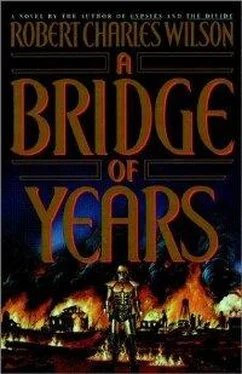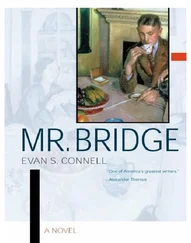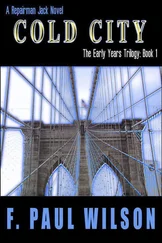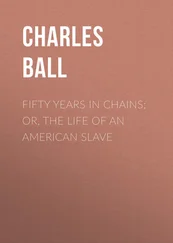“Does this story have a punch line?”
“When I was sixteen I drove my father’s Pontiac into a tree. Totaled it. I wasn’t hurt, but I was driving without a license. They sent me to a so-called military school upstate, with the happy consent of the Juvenile Court. What it was, of course, was a concentration camp for adolescent psychotics.”
“What did you do there?”
Archer ceased smiling. “I ate shit, like every other inmate. These institutions live up to their rep, Tom. They can turn a sullen, rebellious teenager into a sullen, submissive one—like that. I ate shit for a couple of semesters and came back when my dad died. My mother said, ‘I couldn’t leave you in that place.’ I thanked her politely, and when she marched me past the casket—in full parade dress, for Christ’s sake—I looked down and said, ‘Screw you and your poker game and your cardiac arrest too.’”
The silence rang out in the kitchen for a few awkward moments. Tom said, “You never forgave him?”
“He was a lonely, hostile man who never forgave me for being born and complicating his fife. Maybe I’ll be more generous than that. One of these days.” He took a long pull from his beer. “So how about you? Another casualty of childhood?”
“I had a reasonably happy childhood. Nobody sent me to military school, anyway.”
“That’s not the only way to suffer.”
“I can’t say I did suffer. Not substantially. Dad wouldn’t have stood for it.”
“Ah—wait a minute. Winter? Doctor Winter? Used to have a practice over on Poplar Street?”
1 hat s us.
“Shit, I knew Doc Winter! I went there with a ruptured appendix when I was ten years old. My father said, ‘The kid’s complaining about a bellyache.’ Of course, I had a raging fever, my abdomen was hard as a rock, I was convulsing from the pain. Your dad took a look at me and phoned the hospital for an ambulance. When he put down the phone he turned to my old man and said, ‘You nearly killed your child by waiting this long. If there was a license for fatherhood, I would have yours revoked.’ Sick as I was, I remembered that. It felt good. My God, Doc Winter’s son! But didn’t he—?”
“Both my parents died in a car accident,” Tom said. “It was about twelve years ago. A log truck sides wiped them coming around a turn on the coast highway.”
“You were how old?”
“Just finishing high school.”
“Tough situation,” Archer said.
“I lived. The insurance paid for my engineering degree. Much good it’s doing me. But, you know, it was kind of ironic. I always figured Dad got into medicine because he believed the world was a bad, dangerous place. He had a real sense of human vulnerability—the basic fragility of a human body. He once told me the human body was a sack of skin containing the vital organs and something even more fragile, which was life.”
“Maybe not a good attitude to grow up with,” Archer said.
“But he was right. I understood that when the police showed up at the door, the night the truck accordioned his car. There’s no forgiveness built into the system. I told Barbara so, dozens of times. She was always marching off to save the whales, save the trees, save some goddamn thing. It was endearing. But in the back of my head I always heard Dad’s voice: This is only a holding action. Nothing is ever really saved.’ Barbara thought the greenhouse effect was like a virus, something you could stop if you came up with the right vaccine. I told her it was a cancer—the cancer of humanity on the vital organs of the earth. You can’t stop that by marching.”
“Isn’t that a little like giving up?”
“I think it’s called acceptance.”
Archer stood and walked to the door, where his silhouette obscured the motion of the trees. “Very bleak attitude, Tom.”
“Experience bears it out.”
Around six, when the sun began to slant through the window over the sink and the kitchen bloomed with summer heat, they moved into the cooler dimness of the living room. Tom phoned Deluxe Pizza in Belltower and was assessed a five dollar delivery charge, “ ’Cause we don’t ordinarily come out that far.” The order arrived an hour later—pepperoni pizza with anchovies, room temperature. After he paid the delivery driver Tom opened the curtains onto a view of the back yard, shadows lengthening among the pines. His appetite had vanished. He ate a little and took his plate to the kitchen. Coming back he negotiated around the video camera looming on its tripod like an alien sentinel. “They won’t stand for it,” he said again.
Archer looked up from his intense involvement with the pizza. “Yeah, you said that before. Who’s they?”
“I don’t know.” Tom shrugged. “But don’t you get a sense of it—a sort of intelligence at work?”
“I didn’t think we’d admitted that much. Maybe you just have exceptionally tidy roaches.”
“I’m beginning to think otherwise.”
“For any particular reason?”
The dreams, Tom thought. The dreams, the holes in the foundation of the house … and a feeling, an intuition. “No, no particular reason.”
“What you’ve described,” Archer said, “sounds less like intelligence than it does like a machine. The kind of idiot machine that keeps running when the owner’s on vacation.”
“Its owner being who? The guy who lived here—Ben Collier?”
“Maybe. Unfortunately, it’s impossible to find out anything about him. Totally anonymous. Joan Fricker at the grocery store up at the highway must have seen him more than anybody else, and I doubt she could give you a good description. He never participated in public affairs, never held office, never wrote letters to the editor—never said more than hello, as far as anybody can remember. The only person with a special memory of Ben Collier is Jered Smith, who delivered his mail.”
“He had memorable mail?”
“According to Jered, Ben Collier subscribed to every magazine published, or it seemed that way. Some not even in English. Every business day Jered delivered five or ten magazines and newspapers to this address. Magazines, he says, are heavy—and he was delivering on foot back then, though the Postal Service gave him a truck last year. That was the first hint that Ben Collier had vanished: Jered complained that there was a stack of magazines deep enough to block the mail slot.”
“What kind of magazines?”
“Everything from Time to the Manchester Guardian. Heavy on current events, but not exclusively.” Tom was bemused. “It’s an eccentricity, but—”
“Not just eccentricity. There’s some pattern here. It’s not a random set—more like a linear equation.” Tom raised his eyebrows; Archer added, “Math is my other hobby. Math was the only high school class I never cut—you remember Mr. Foster? Tall guy, gray hair? Said I had a talent for it. I’m the guy who always reads the puzzles column in Scientific American. ”
Douglas Archer, JD mathematician. Don’t underestimate this man. “ It’s not much to go on.”
“It’s absolutely nothing. Nothing at all. Just kind of interesting.” Archer put his plate aside and stood up. “Well, anyway. Don’t touch the equipment—it’ll turn itself on. But you might want to play back the tape in the morning.”
“Count on it. Can you stay for coffee?”
“I have a date for a late movie. But let me know what shows.” His smile was mischievous. “Or what doesn’t.”
Archer closed the door behind him, and suddenly the house was hollow and empty.
That night, Tom made the disturbing discovery that he was afraid to go to sleep.
He showered and wrapped himself in a bathrobe and tuned in the “Tonight” show. The chatter was tedious, but he left it on for the sound of human voices. That’s why we all own these boxes, he thought: because they talk to us when there’s no one else home.
Читать дальше












